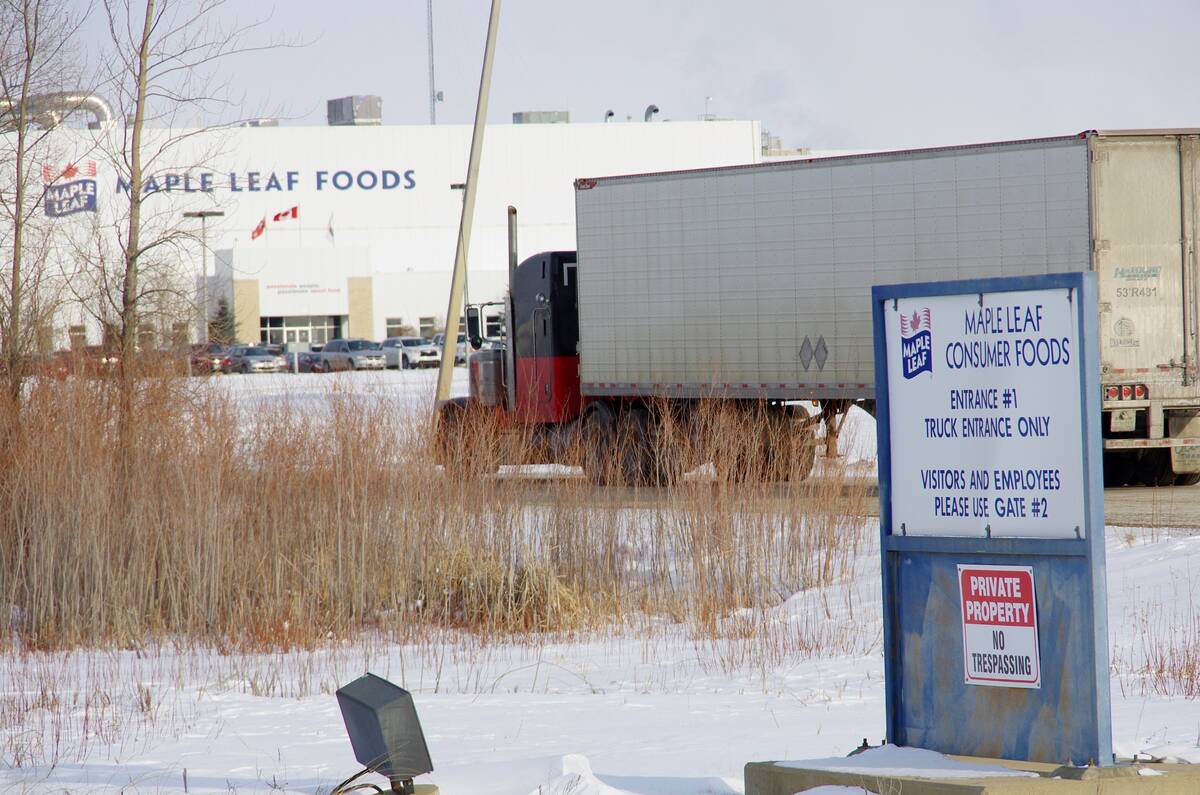Real life scenarios | The course has always taught marketing and production but the new model also teaches critical thinking
VERMILION, Alta. — Students in Lakeland College’s student managed farm program earned a profit of $107,000 last year and have $138,000 worth of grain still in the bins.
An 18 acre field of AC Andrew soft wheat yielded slightly more than 80 bushels per acre and a 15 acre field of Ranger barley produced 90 bu. per acre.
Their three varieties of canola ranged from 36 to 43 bu. per acre on 300 acres but was downgraded because of patchy germination in the spring and an early frost in the fall.
Jared Sapach, marketing manager for the program, said selling frozen canola for $9.46 to $12.07 per bu. was an accomplishment for the 24 students, despite the poor quality.
Read Also

Manitoba pork exports gain new market ground
Manitoba’s pork trade pivoted from China over the last five years, while Japan is remains the largest customer and South Korea and Mexico market footholds have grown
“Our canola was all downgraded due to green counts, but we were still able to sell well above the breakeven price and make a decent profit of it,” said Sapach, who knew nothing of pricing and selling grain before enrolling in the college’s agriculture department.
Public relations manager Codey Boehm said a 96 acre field of peas was the highlight.
“In my opinion, the best crop was the peas because they yielded 62 bu. per acre, which was one of the best crops in the area,” said Boehm.
“The peas require less nutrients in spring. Prices were also very strong for peas, at around $9 per bushel. Normally prices are in the $6 range so you can see why they were the top crop for the farm.”
Dry seedbeds, frost, market fluctuations, high fertilizer prices, seeding decisions, bumper yields and a wide variety of chemical options — welcome to the world of farming.
Lakeland College has had a student managed farm program since 1990, but it recently changed its focus to concentrate on training students in critical thinking as well as production.
Agricultural sciences dean Josie Van Lent said the students learn marketing, production, soils and business management, but they also learn critical thinking.
“We wanted to model ag business,” she said.
“What we really teach is management of an agriculture business. That was our renewal.”
During weekly meetings, students discuss what crops to plant, chemicals to use and where to sell the crops.
“You should see the meetings these guys have and the things they talk about. ‘Should we grow flax? How do you decide to grow flax?” said Van Lent.
Students make all the decisions on the farm and have access to 1,700 acres of college-owned land, purebred Black Angus and commercial cattle herds, Dorset and Arcott sheep and Holstein and Jersey dairy cattle.
Team work, decision-making, conflict resolution, planning and organizing are among the management skills taught in the program.
Cory Laird, this year’s general manager, said learning how to work with and manage people was the skill he learned most during his time with the student management farm.
“The biggest part was learning how to communicate and keep all the group informed,” said Laird, who didn’t grow up on a farm but already has a job after graduation with an independent agriculture retailer.
“It was very important to have weekly general meetings. That was an opportunity for each group to stay in touch. We also held managers meetings every week to discuss strategies,” he said.
“It also taught me that different people responded to different ways. There are a lot of ways to handle issues.”
Van Lent said it is satisfying to watch young students confidently stand in front of their team and advocate why peas should be grown rather than flax, or why they should wait to sell their grain.
These are skills the students will use when they return to the family farm or get a job in business, she added.
“That’s the coolest part, that’s so rewarding,” she said.
“For many of these students who are going back to larger farm operations, with both family members, employees or both or they’re going into an ag business, they have to work with many other people.… For all of us that work here, it’s incredibly rewarding to watch them grow and develop.”
The number of students studying agriculture at Lakeland College has doubled in the past five years to 300 from 150.
“We went through a major curriculum review process. It helped us to stay current and drive student managed farm in a renewed focus,” Van Lent said.














